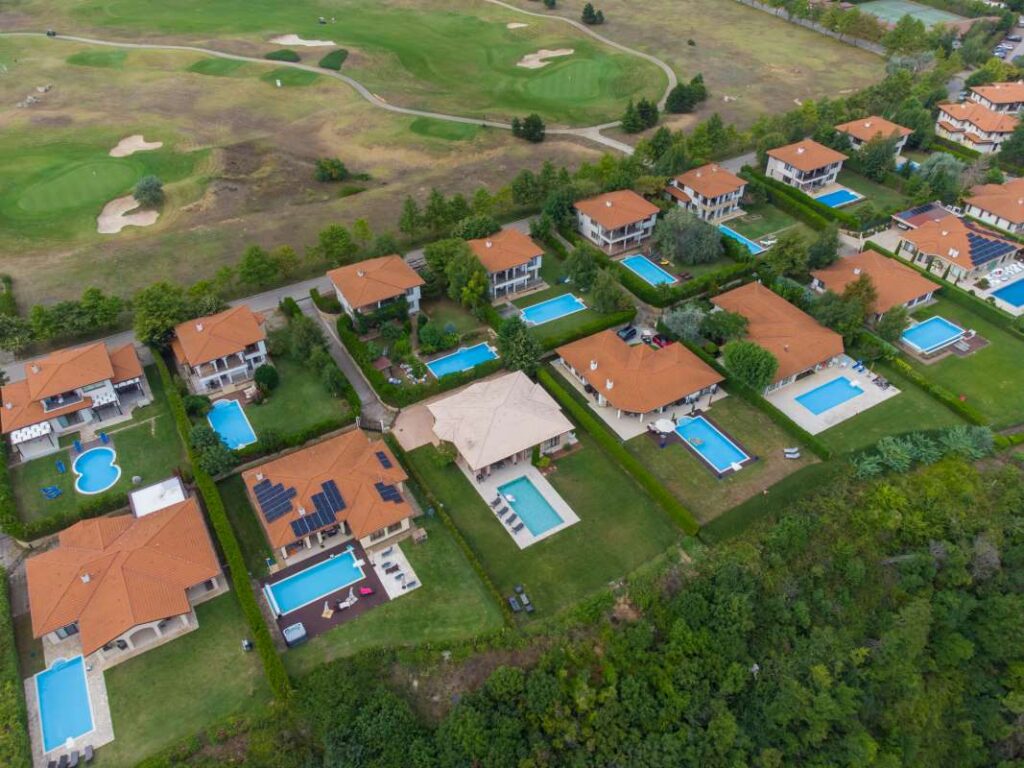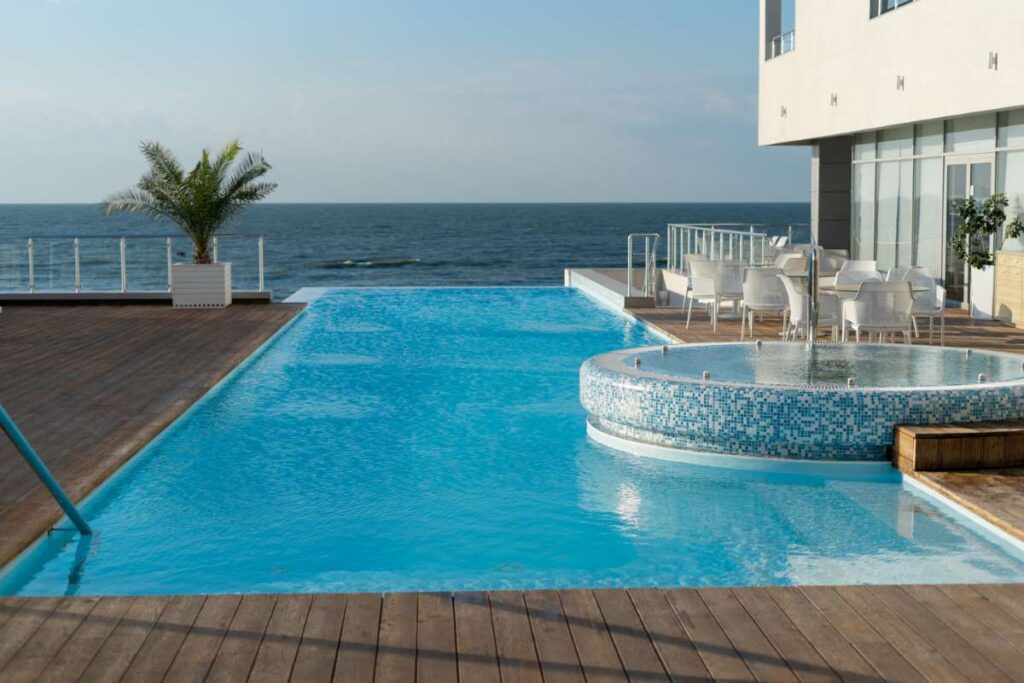Explore essential safety considerations for those operating in the pool route business. Learn how to protect yourself, your employees, and your clients.
Pool Route Business: Safety Considerations
Operating a pool route business comes with its unique set of challenges, one of which is ensuring safety for all involved. Whether you’re just starting out or you’ve been in the pool service industry for years, safety is critical. In this blog post, we will delve into the safety considerations every pool route business should address, from personal protective equipment (PPE) to safe driving practices. You’ll also learn about key safety measures that will help you protect your employees, customers, and business assets. By the end, you’ll be better equipped to run a safe and successful pool service business.
Introduction
Pool route businesses play a vital role in maintaining residential and commercial pools across the country. With a steady stream of clients who rely on your services to keep their pools clean and functional, it’s essential to ensure safety in every aspect of the business. From handling chemicals to navigating through different neighborhoods, pool route professionals must prioritize safety to prevent accidents, protect their health, and provide excellent service.
Running a successful pool route business isn’t just about maintaining pools—it’s about doing so safely. In this article, we will cover various safety practices that pool service providers should implement, from proper chemical handling and vehicle safety to ensuring personal safety on the job.
Personal Protective Equipment (PPE) for Pool Technicians
One of the most important aspects of safety in the pool route business is ensuring that employees are equipped with the right personal protective equipment (PPE). Pool technicians often work with potentially hazardous chemicals and in environments that pose physical risks. Here are the essential pieces of PPE to consider:
- Gloves: To protect the skin from pool chemicals such as chlorine and acids, gloves should be worn at all times. It's also important to wear gloves when handling pool equipment to avoid cuts and abrasions.
- Safety Glasses: Chemical splashes can cause severe eye damage. Technicians should wear safety glasses or goggles to protect their eyes while handling chemicals or working around pools.
- Proper Footwear: Closed-toe, slip-resistant shoes are crucial for preventing accidents on wet surfaces, which are common around pools.
- Work Clothing: Technicians should wear durable clothing that can withstand chemical spills and the physical demands of the job. Long sleeves and pants provide additional protection.
Proper training is essential to ensure that all employees understand how to use and maintain their PPE. Providing the right gear for your team is a basic step in preventing injuries and accidents.
Handling Pool Chemicals Safely
Pool technicians frequently work with chemicals that can be hazardous if mishandled. Chlorine, muriatic acid, and other pool chemicals can cause burns, respiratory issues, and other health problems if safety guidelines are not followed. Here are some important tips for handling pool chemicals safely:
- Read Labels and Safety Data Sheets (SDS): Before using any pool chemical, it’s important to read the label and SDS to understand potential hazards and safety precautions.
- Proper Storage: Chemicals should be stored in a cool, dry, and well-ventilated area, away from direct sunlight and incompatible substances. Ensuring proper storage will prevent chemical reactions and spills.
- Use Correct Dilution: Always follow manufacturer recommendations for diluting chemicals. Improper dilution can lead to harmful reactions and affect the pool's water chemistry.
- Transporting Chemicals Safely: When transporting chemicals in a vehicle, make sure they are securely fastened and kept upright. Avoid leaving chemicals in your car for extended periods to prevent heat exposure or spills.
- First Aid: Be prepared with first aid supplies and know how to respond to chemical spills or exposure. Having a well-stocked first aid kit and understanding emergency procedures can save lives in case of an accident.
By implementing proper handling, storage, and transportation protocols for pool chemicals, you can mitigate health risks and maintain a safe working environment for your team.
Safe Driving Practices for Pool Route Technicians
A significant portion of the pool route business involves driving from one customer location to another. With so much time spent on the road, it’s crucial to implement safe driving practices. Accidents can occur quickly, but proper safety measures can prevent serious injury or damage.
Here are a few key safe driving tips:
- Vehicle Maintenance: Ensure that the service vehicle is regularly maintained to prevent mechanical failures. This includes checking tires, brakes, lights, and fluids. A well-maintained vehicle is less likely to break down unexpectedly, keeping drivers safe.
- Obey Speed Limits and Traffic Laws: Adhering to speed limits and traffic laws is fundamental to road safety. In the pool service business, technicians are often on tight schedules, but driving too fast can lead to accidents. Encourage safe driving habits and remind your team to follow all local traffic laws.
- Distracted Driving: Avoid distractions such as texting, phone calls, or eating while driving. Encourage employees to pull over safely if they need to make a call or respond to a message.
- Proper Loading: Ensure that pool equipment and chemicals are securely stored in the vehicle. Loose items can pose a safety hazard if they shift during transit, especially in the event of a sudden stop or collision.
Safe driving not only protects your employees but also helps protect your business from liability. A clean driving record can also improve insurance rates, making it a smart choice for the long term.
Employee Training for Safety
Training your employees is one of the best ways to ensure that safety practices are followed on every job. Comprehensive training should cover a variety of safety topics, including chemical handling, proper use of equipment, and emergency procedures.
At Superior Pool Routes, we offer extensive Pool Routes Training, which includes both virtual and in-field training programs. These courses ensure that your employees are well-equipped to handle the demands of pool route work safely and efficiently. Key elements of our training include:
- Pool Maintenance Safety: Learning how to properly maintain pools without putting oneself at risk is critical. Our training covers how to safely clean and maintain pools while avoiding injuries.
- Chemical Handling: We provide guidance on how to handle pool chemicals safely, from mixing to storage and disposal.
- Emergency Protocols: Training should include what to do in case of a chemical spill, injury, or accident. Quick response to emergencies can make a significant difference in preventing further harm.
Ongoing training is also important. Regularly refresher courses and safety meetings can ensure that employees stay up to date on best practices and safety regulations.
Safety Tips for Working Outdoors
Pool technicians often work outdoors, sometimes in extreme weather conditions. Working in the heat can lead to dehydration, heat exhaustion, or heatstroke. On the other hand, cold weather can lead to frostbite or other cold-related injuries. Here are some important tips for staying safe while working outside:
- Hydration: Ensure that technicians drink plenty of water, especially during hot days. Dehydration is a serious risk, so it's important to have water available at all times.
- Wear Sunscreen: Exposure to the sun can lead to serious skin damage and increase the risk of skin cancer. Wearing sunscreen and protective clothing can help reduce these risks.
- Take Breaks: Working long hours without breaks can lead to fatigue and accidents. Encourage employees to take short, regular breaks to rest and recharge.
- Monitor Weather Conditions: Stay updated on weather conditions, particularly during extreme temperatures or storms. Work should be paused if the weather conditions pose a risk to safety.
By taking precautions and being mindful of environmental factors, pool service technicians can avoid accidents and stay healthy throughout the workday.
Conclusion
Safety is paramount when it comes to running a pool route business. By implementing proper safety measures, including using personal protective equipment, safely handling pool chemicals, practicing safe driving, and training employees thoroughly, you can ensure a secure working environment for everyone involved.
Superior Pool Routes supports its partners with top-notch Pool Routes Training and emphasizes the importance of safety in every aspect of the pool service business. With the right safety protocols in place, your business will not only thrive but will also minimize risks and avoid costly accidents.
Remember, the success of your pool route business relies on your ability to provide excellent service while ensuring the safety and well-being of both your employees and customers. By making safety a priority, you are building a solid foundation for long-term success in the pool service industry.
For more information about starting your own pool route business or expanding your current service, check out Pool Routes How It Works and learn how you can take the next step toward owning a safe and profitable business.



